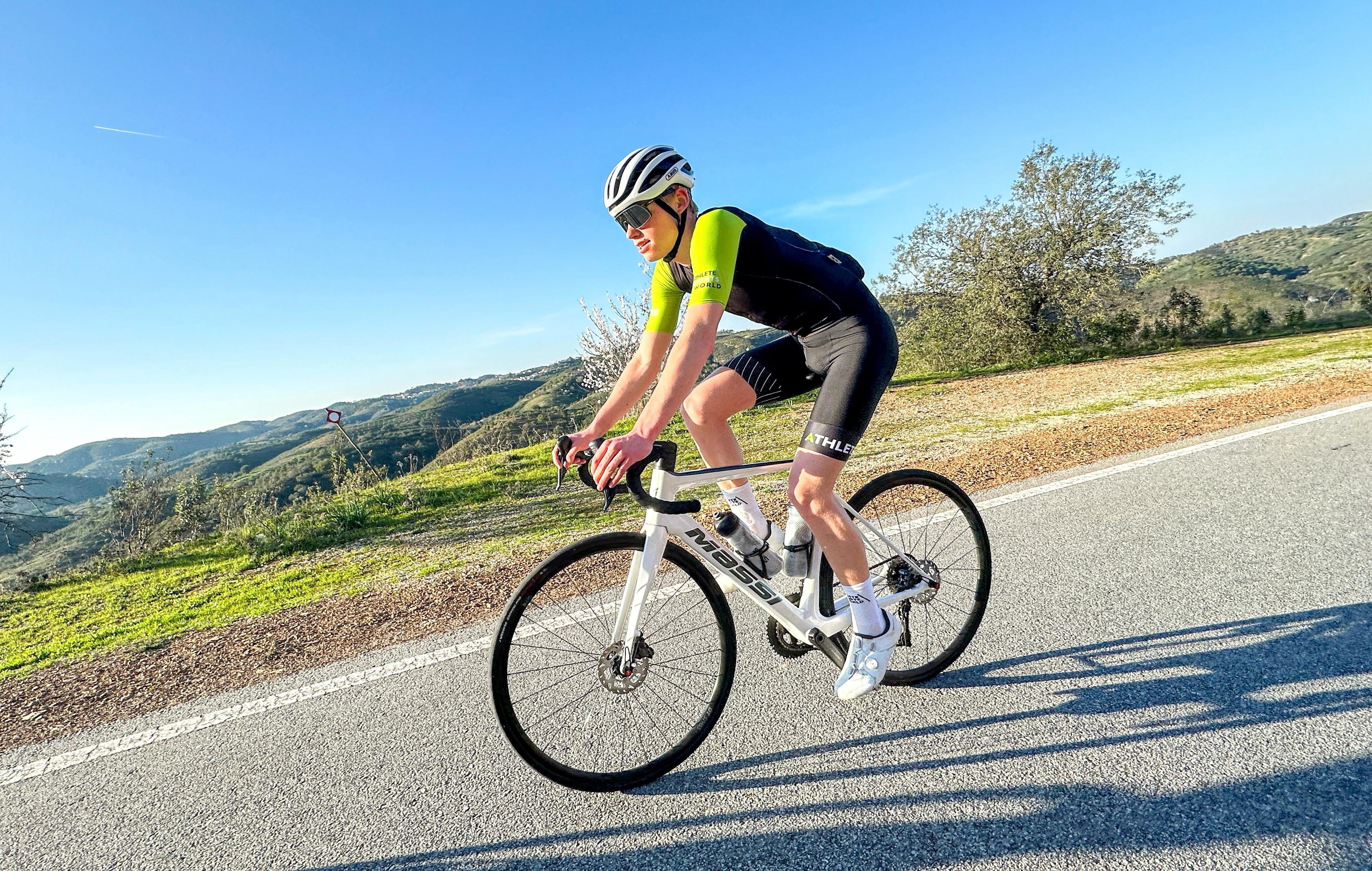Are you a beginner or an experienced athlete? In all cases, we are happy to give you advice at AthleteSportsWorld. Call or email us for personal advice. Want some general advice first? Then read on below.
Nutritional adviceWhen should I and can I use sports nutrition? For many triathletes who train and compete regularly, this is an important question and where the answer is not always clear. Everything stands and falls on a healthy and balanced basic diet. Only after that comes sports nutrition and then any supplements.
An important build-up of sports nutrition during a training session or race is an essential component in getting to the finish/finish line easily and performance-wise, since at the end of the day you only possess a limited supply of carbohydrates in your body.
When burning fats as an energy source, carbohydrates will always be used as well. Thereby, it is good to know that the body (on average) can only absorb a maximum of 60 to 100 grams of carbohydrates per hour.
An example is detailed below:
You participate in a 4-hour training or race. In the first hour you burn 70 grams of carbohydrates by exercising. However, in that hour you only get 50 grams of carbohydrates through sports drinks, energy gel or an energy bar. You have then built up a deficit of 20 grams of carbohydrates. This deficit cannot be made up in the next hour (if you keep riding). After all, your body will only absorb a maximum of 70 grams (and you will have used them again in the 2nd hour). Throughout the training or race you will continue to have this deficit. If this happens again in the next hour, you will have a shortage of 40 grams. In a ride longer than 4 hours, you build up a significant deficit. This is where the man with the hammer comes in....
If you prepare your training or race properly, you can avoid this energy deficit.
Before the effortIn preparation, two different moments must be distinguished:
- Period of months and weeks before the competition
- Period of 6 days before the competition
In the period of months and weeks, the emphasis is on building overall fitness and speed. Preferably on the basis of a training schedule. This schedule should include enough room for recovery. Also use this period to experiment with sports nutrition.
To improve overall fitness, you can use sports supplements as support. Proper recovery from workouts and exercise trips will also help you progress faster. Consider using recovery drinks and protein bars or drinks.
The 6-day period before the main goal is all about decreasing intensity and duration of workouts in combination with "stacking" carbohydrates. This is also known as "tapering." The effect is that by the end of this period, your body will have stored extra carbohydrates that you can use during the race.
Carbohydrate stacking can be done through special sports nutrition that is rich in carbohydrates. In particular, special drink mixes are suitable for this purpose. With these sports foods, compared to normal food, you can take in many more carbohydrates in short bursts.
TIP: Before exercise on the day, do not drink sports drinks with sugars. The fast carbohydrates you ingest beforehand cause a rise in your blood sugar, after which a big dip occurs. You then get very weak legs and feel lethargic. Instead, take a thirst quencher with only salts and minerals.
If a training session or race lasts longer than 60 minutes, you can improve your performance by eating carbohydrates and supplementing fluids with sports drinks during exercise.
However, carbohydrates should not be supplied in unlimited quantities because, on average, no more than 1 to 1.2 grams per minute can be processed by the body. Thus, a maximum supply is about 60 to 70 grams of carbohydrates per hour (rule of thumb is 1.2 grams/hour/kg body weight). Taking in more does not necessarily lead to a higher burn rate.
So there is no point in swallowing very high amounts of sugars or drinking very syrupy drinks, as this increases the risk of gastrointestinal problems.
So the period of exercise is all about eating regularly. Take in around 70 grams of carbohydrates combined with about 750ml of sports drink per hour.
Do you only drink water during a ride or workout? Realize that you also lose minerals and salts (electrolytes) through sweating. These are essential for regulating your hydration.
After heavy training, competing or completing a tour, it is important that you give your body the right nutrients to recover as soon as possible.
Recovering quickly in turn ensures that you will soon be fit to do the next training or race.
Make sure you eat plenty of recovery-enhancing drinks or food within 30 minutes of exercise. These are drinks and bars that contain the right combination of protein and carbohydrates. This will help the used muscles recover faster and allow new muscle mass to be created without having to use other parts of the body to do so. This is because if you do not use enough protein after your workout, you will draw protein (protein) from other muscles of your body to facilitate recovery. This does recover in the long run, but is certainly not optimal for an athlete who wants to improve performance.
Recovery drinks and bars can address this problem. The carbohydrates replenish the glycogen stores, while the salt helps retain the absorbed fluid.
Time is also an important factor in the recovery phase. Depending on the situation (the exercise performed, muscle glycogen stores at the start of the exercise and nutrition afterwards), complete recovery can take from 10 to even 36 hours. Adequate rest is therefore essential to recover optimally from exercise. Sports massage can also speed up the recovery process.
TIP: Which brand of sports nutrition you use is very personal. So don't just rely on advice from your friends. Try several brands during training sessions so you know what you like and how your body reacts to the chosen sports nutrition.
- Avoid sugars like white, brown, cane and grape sugar. These are quickly absorbed into the blood, causing insulin levels to rise and lurking a "sugar dip."
- Avoid saturated fats.
- Eat more fish, as fish actually contains good fats.
- Choose semi-skimmed or skimmed milk.
- Use nuts and seeds as snacks. Nuts and seeds are important dietary sources of trace minerals and polyunsaturated fatty acids.
- Antioxidants prevent cell and tissue damage from the free radicals released during (strenuous) exercise. They accelerate the recovery process after heavy exercise, reduce injury susceptibility and counteract aging. Therefore, put foods rich in antioxidants on the menu often: carrots, Brussels sprouts, broccoli, tomatoes and cauliflower.
- Cooked vegetables are healthier than raw ones. Cooking softens the tough cell walls, allowing the antioxidants to be better absorbed by the body.
- Raisins are particularly high in carbohydrates as well as fiber, iron and potassium.
- Caffeine stimulates fat burning and boosts performance.




